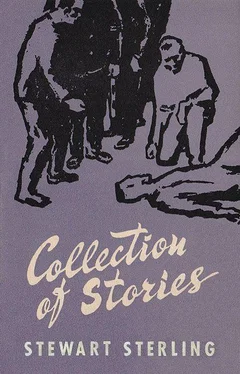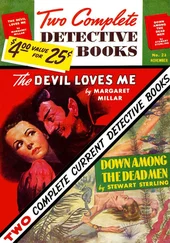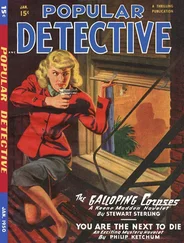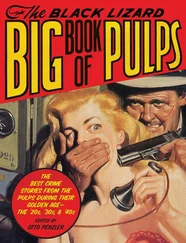Стюарт Стерлинг - Collection of Stories
Здесь есть возможность читать онлайн «Стюарт Стерлинг - Collection of Stories» весь текст электронной книги совершенно бесплатно (целиком полную версию без сокращений). В некоторых случаях можно слушать аудио, скачать через торрент в формате fb2 и присутствует краткое содержание. Жанр: Детектив, на английском языке. Описание произведения, (предисловие) а так же отзывы посетителей доступны на портале библиотеки ЛибКат.
- Название:Collection of Stories
- Автор:
- Жанр:
- Год:неизвестен
- ISBN:нет данных
- Рейтинг книги:3 / 5. Голосов: 1
-
Избранное:Добавить в избранное
- Отзывы:
-
Ваша оценка:
- 60
- 1
- 2
- 3
- 4
- 5
Collection of Stories: краткое содержание, описание и аннотация
Предлагаем к чтению аннотацию, описание, краткое содержание или предисловие (зависит от того, что написал сам автор книги «Collection of Stories»). Если вы не нашли необходимую информацию о книге — напишите в комментариях, мы постараемся отыскать её.
Collection of Stories — читать онлайн бесплатно полную книгу (весь текст) целиком
Ниже представлен текст книги, разбитый по страницам. Система сохранения места последней прочитанной страницы, позволяет с удобством читать онлайн бесплатно книгу «Collection of Stories», без необходимости каждый раз заново искать на чём Вы остановились. Поставьте закладку, и сможете в любой момент перейти на страницу, на которой закончили чтение.
Интервал:
Закладка:
The avenue was crowded with shiny red apparatus. The bloodshot eyes of motor pumpers and chemical trucks spilled claret over the canvas covered hulls in the Trident yard. The night was noisy with gongs, sirens, much shouting.
Mulcahey watched the cloud of steam rising from the charred ribs of the Urchin.
“I thought these guys weren’t allowed to keep their gas tanks filled while they are in yard storage, Steve.” He turned to Koski.
“Aren’t, Sarge. Ken was about ready to launch his boat, though. He’d been retiming his motor, thought he’d take a chance and test it out on dry land, I suppose. He had ten gallons put in yesterday. Rikky knew that, I guess.”
“You’ll never know for sure, then. He didn’t have an inch of skin left on him that wasn’t crisp as a piece of burnt bacon, when they dragged him out.”
“Eventually, why not now?” Koski murmured.
“Huh?”
“He’d have been burned anyway, sooner or later.”
“I see what you mean. What I do not see is this: how did you figure this Caton’s body was in the water, too, when you told me to have the boys grapple a second time?”
“The washroom. In his joint.”
“Is that supposed to clear it up for me?”
“It was locked, Irish. Joints like that, you have to keep the men’s room open. Rikky’d used it to clean off the blood on his clothes after the murder. Some of the clothes were still in there. He didn’t have time to dispose of ’em, and he didn’t want to be away from the bar too long and start suspicions...”
“Oh! Yuh. Simple! When you state it thus.”
“Well. Of course he gave his hand away when he tried to shut up dizzy Liz. If he’d just let her gabble on, I might not have given him a second s thought.”
“No?” The sergeant turned to gaze at the black hulls of the patrol boats — lightning-bugs, showing fitful lights around the float.
A distant hail went up. Searchlights dipped straight on the surface.
“They will have found Caton, Steve. Another of them post mortems you were talking about.”
“We’re improving, though, Irish.”
“Are we now? With three casket cases on our hands in one night?”
“I think so. Too little help, maybe. But not entirely too late.” Koski stared soberly at the internes standing by the blanketed figure of Marya Caton near the ambulance. “We were in time to save a little something out of the wreckage. Something worth saving, if you ask me.”
Never Come Mourning
Detective Book Magazine, Winter, Sept.-Nov. 1948
It seemed futile to hunt through that steaming jungle of twisted metal and charred wood. A screen of blackish water dripped from the warped girders above. A veil of smoke hung sluggishly over the smoldering wreckage. Searchlights, shooting up from the street, cast grotesque shadows through the gutted hotel.
As he followed the fat python of canvas which coiled up the staircase around the steel bones of the elevator shaft, he appeared to be methodically following another, more obscure, trail through the clutter. His eyes, reddened from too much exposure to acrid fumes, held the bleak bitterness of a boy helpless to prevent the agonies of a pet dog.
He moved, cautiously, focusing the cone of light here on a lump of fused glass, there on the drooping angle of a buckled pipe. The melted metal of electric fixtures held peculiar interest for him.
On the landing between the third and fourth floors, he flattened against wet brick to permit gangway for a helmeted pair clumping streetward with a limp burden. It didn’t seem to disturb them when the head of the sagging figure they were lugging banged against a beam.
The man with the flashlight asked: “Many more up there?”
“Plenty on nine and ten, Marshal.” One of the laddermen recognized him. “Ain’t any hurry about getting ’em out, now, though.”
His partner cursed in corroboration; they clumped on down. Chief Fire Marshal Pedley went up.
He left the stairs, moved slowly down the corridor of the fourth floor. The boards became suddenly springy beneath his feet. He went down on hands and knees, distributing his weight.
It was slow work, crisscrossing the corridors from door to door, creeping over jagged shards of glass, slivers of metal. The drenched woodwork was still blistering. The planking grew spongier underneath him. He kept on, hacking lightly at the inside and outside of each door with his emergency axe. All the chips showed a greater depth of char on the corridor side than on the room side, until he reached room 441.
The blackened fragments from that door showed the roomside burned much more deeply than the exterior. He started in the room. There was a sound like a ripping canvas; the floor sagged, tilted away from him.
He spreadeagled — as he would have on ice too thin to support him — inched on.
His fingers touched fibrous jelly interlaced with coiled wire; what was left of the mattress. Two-thirds of the way across the bed, the drenched pulpiness became greasy residue, where the mattress-filling had burned away. This was where the blaze had started...
With infinite caution, he worked his way around the room. The front legs of the bureau had burned first, tipping the glass top and what had been on it, forward onto the floor. Woman’s things. Hairpins. A long nail file. The fused back of what had been a silver hairbrush. A compact.
The beam of his flashlight glinted on a thin, round neck of glass. The remnants of a liquor bottle. Beside it, flat pieces. An ash-tray that had cracked in two, folded over on itself as if made of cardboard. Between the two segments was the sopping stub of a cigarette — unburnt — the paper-stained tobacco yellow. He fished it out of its place of protection with a pair of tweezers as if he were extracting the fangs of a cobra.
Below in the street, gongs clanged as pumpers and combinations rolled back to their stations. Pedley remained for long minutes in room 441, wriggling across the insecure floor, putting shoe-eyelets into envelopes, scooping up ashes with a spatula, scowling...
By the time he had descended to the lobby, only the big quad and the hook-and-ladders remained in the street; their long fingers pointed accusingly up at glassless windows. Hosemen were uncoupling. Police were forcing the fire lines back toward the avenue. The bloodshot eyes of ambulances glared at shiney black rubber and crisp white jackets moving among the rows of tarpaulin-covers stretched along the curbs...
Inside the lobby, firemen, policemen and a few individuals in civilian clothes milled about wearily. One of the latter, a blocky man with a raw hamburg complexion, signaled to the Marshal across the wreckage of the room clerk’s desk:
“Those babies’re raising hell, Ben. They want out of here, bad. That manager’s ready to blow his fuse. Says he’s going straight to the Commish...”
“Tell him to go to hell. This fire was set. He’s partly responsible. Before we get through with him, he’ll wish he was lying out there on the sidewalk with the others.” Pedley’s voice was a gritty file on rough metal. “I’ll take ’em in the manager’s office. One at a time. That floor patrol, first.”
The Deputy Marshal pushed a heavyset, white-haired man into the manager’s office. The man’s puffy face was shiny with sweat; his eyes dull with shock. The absence of his left eyebrow and part of his hair on the left side gave him a lopsided appearance. The port sleeve of his light blue uniform had been slashed off at the elbow; his wrist and hand were encased in a bandage.
“Doc says this gent has to hustle to Polyclinic for treatment,” the deputy explained. “He hung out one them seventh floor windows twenty minutes before they got the big ladder up to him. That’s a second-degree burn on his duke. He got a bellyful of fumes, too.”
Читать дальшеИнтервал:
Закладка:
Похожие книги на «Collection of Stories»
Представляем Вашему вниманию похожие книги на «Collection of Stories» списком для выбора. Мы отобрали схожую по названию и смыслу литературу в надежде предоставить читателям больше вариантов отыскать новые, интересные, ещё непрочитанные произведения.
Обсуждение, отзывы о книге «Collection of Stories» и просто собственные мнения читателей. Оставьте ваши комментарии, напишите, что Вы думаете о произведении, его смысле или главных героях. Укажите что конкретно понравилось, а что нет, и почему Вы так считаете.












